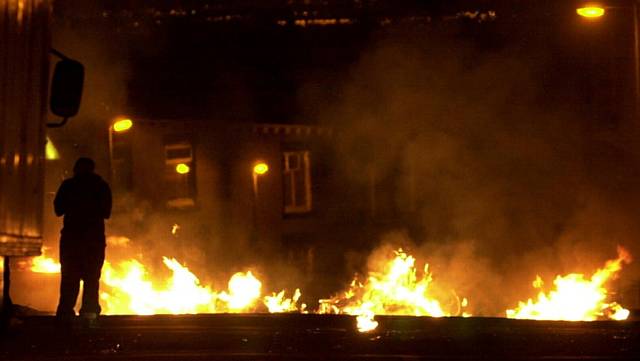Lessons of race riots 'not learned UK-wide'
Reporter: Lucy Kenderdine
Date published: 27 May 2016
INITIATIVES created in Oldham to reduce community segregation following the 2001 race riots have yet to be implemented across the UK, an expert has said.
Professor Ted Cantle has spoken about the mix of integration and segregation across the country following the first meeting of the All-Party Parliamentary Group on Social Integration on Monday.
Tensions
Professor Cantle was asked by David Blunkett, Home Secretary at the time, to prepare at report into the riots, which took place over three nights starting on May 26, 2001.
In the 2001 report, Professor Cantle argued the tensions and unrest between white and Asian youths had been caused by communities living entirely separate or "parallel" lives.
Speaking this week, Professor Cantle highlighted the work of Waterhead Academy, which opened six years ago, as an example of Oldham attempting to bring children from diverse communities together.
However, the example of Waterhead, which merged together Counthill, a predominantly white school with predominantly Asian Breeze Hill, and other community integration initiatives, have not been continued elsewhere in the country, Professor Cantle argued.
Professor Cantle said: "There is an acceptance of diversity now and more mixed areas in many parts of the country. However, I am afraid there is segregation too - segregated neighbourhoods, segregated schools, even segregated workplaces."
Professor Cantle also argued that the need to combat terrorism had also "overwhelmed" community cohesion work.
It follows comments from Oldham West and Royton MP Jim McMahon who argued that many of the "deep-rooted problems" highlighted by the riots still exist 15 years later.
Mr McMahon said: "It is 15 years since the Oldham riots. Oldham is setting out a new vision where every community will benefit from a confident and vibrant town.
"But many of the deep-rooted problems are still here: low education and skills outcomes, low wages, poor quality housing and communities still living very separate lives."
Most Viewed News Stories
- 1‘If you jump into two trams you know what you are doing - I am against protecting fools’
- 2The ‘rescued’ historic building that’s sprouting trees
- 3More than 20 homes planned on open green space in Shaw
- 4New plans for HMO hotspot in Chadderton slammed as ‘irresponsible’
- 5Medals galore for Max Force contingent in Spain





